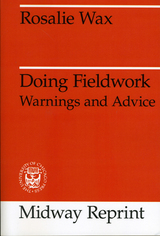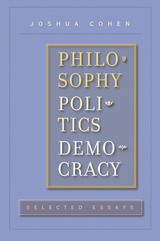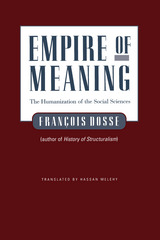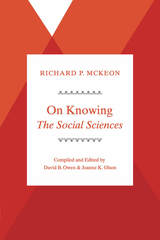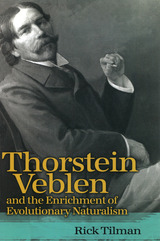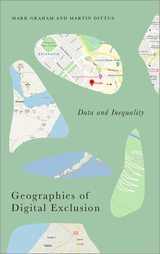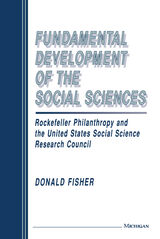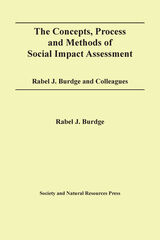Contents
List of Tables
List of Figures
Acknowledgments
ONE. Introduction
1.1.1. The Place of Formal Models in Research Design
1.1.2. Formal Models and Theoretical Replication
1.2. Models as Methodological Tools
1.3. Theory, Models, and Evidence: A First Look
1.4.1. Why Care about Models: Epistemology and Function
1.4.2. Who This Book Is For
1.5. Map of the Book
TWO. Epistemology: A Path to Knowledge from Story through Narrative to Model
2.1. Formal Models in Research Design: A Closer Look
2.2.1. How the Theory Informs the Model: T -> M
2.2.2. How Models Test and Build Theories (M -> T′, part 1)
2.2.3. Strategies for Reconciling Theory and Model (M -> T′, part 2)
2.2.4. Limits of Reconciliation between a Theory and a Model
2.3. The Connection between Models and Evidence (Ei -> M and M -> E)
2.3.1. Modeling Life, the Universe, and Everything (Ei -> M)
2.3.2. What Is a Narrative and How Is It Constructed? Ei -> N or T -> N?
2.3.3. Thick vs. Thin Narratives: The Art of Finding the Balance
2.3.4. Overextending the Inductive Step: The Special Case of the Fusion of Narratives and Formal Models in the Method of Analytic Narratives
2.3.5. Models to Evidence: M -> E
2.4. Single Story, Multiple Narratives, Even More Models
2.5. Models in the Big Picture
3.1. The Primacy of Theory
3.1.1. The Distinctiveness of Formal Theory as a Methodology
3.1.2. The Question as Prism
3.2. The Technology of Modeling: Types of Formal Models
3.2.1. Expected Utility Maximization
3.2.3. Social Choice Theory
3.2.4. Cooperative Game Theory
3.2.5. Noncooperative Game Theory
3.3. Knowing the Steps and Stepping in Sequence
3.4. The Generality of a Model
3.4.1. Assumptions: The Fewer the Better
3.4.2. The Prisoners' Dilemma: Illustrious and Illustrative
3.5. Conclusion
FOUR. Community Effort: Rewarding or Requiring a Reward?
4.1. What Is in It for the Chief?
4.1.1. The Chief as a Traditional Officeholder
4.1.2. Model 4.1: The Chief's Utility Function
4.2. What Is in It for the Villagers?
4.2.1. The Villagers' Responses to the Awards
4.2.2. Model 4.2: The Utility of Two Types of Villagers
4.2.3. Testable Implications from Model 4.2
4.3. Does Turning to Awards Point to an Erosion of Traditional Identity?
4.3.1. Redefining a Contemporary Traditional Community
4.3.2. Model 4.3: Villagers' Compliance with (Redefined) Community Values
4.4. Conclusions
FIVE. Industry Regulation: Rationale and Stakeholders (with Julie Van Dusky-Allen)
5.0. Extant Knowledge as the Baseline
5.1.1. Technology Choice to Minimize Costs Is Costly for Others
5.1.2. Model 5.1: Not in Common!
5.2. Proposing a Change in Regulatory Provisions to Best Advance a Policy Goal
5.2.1. Regulation as an Object of Design
5.2.2. Reassessing Technology Choice under Variable Monitoring Thresholds
5.2.3. Hypotheses: Instruments for Assessing Policy Experimentation
5.3.1. How Hard Would a Subnational Agency Push for Regulatory Change?
5.3.2. Balancing Stakeholders' Interests
5.3.3. Testable Implications
5.4. Conclusions
SIX. Setting the Agenda to Manipulate the Outcome (with Benjamin Farrer)
6.1. All in a Day's Work: International Diplomacy on the Prime Minister's Multifold Agenda
6.2. Social Choice Agenda Setting Model
6.3. The Same Narrative Modeled as a Cooperative Game
6.4. No Testable Propositions: Outcomes of Agenda Manipulation Compared to Counterfactuals
6.5. Conclusions
SEVEN. Games and Uncertainty in U.S. Criminal Justice Systems (with Andrei Zhirnov)
7.1.1. Rationalizing Norms of Illegal Behavior within Law Enforcement
7.1.2. The Game between Guards and Prisoners
7.1.3. Hypotheses from Model 7.1
7.2.1. Risk, Obstruction, and Monitoring
7.2.2. The Game between the Sheriff's Deputies and the Federal Agents
7.2.3. Hypotheses from Model 7.2
7.3.1. Guilt, Punishment, and Precedent
7.3.2. The Game between the Sheriff's Deputies and the Judge
7.3.3. Hypotheses from Model 7.3
7.4. Conclusions
EIGHT. The Role of Modeling in How We Know What We Know
8.1.1. Models Test Theory
8.2. Formal Models in Research Design
8.2.1. Models Enhance Hypotheses
8.2.2. Models Enable Theoretical Replication
8.2.3. Models Advance Knowledge Accumulation
8.3. Our Epistemological Claims
8.4. The Meta-Method of Formal Modeling
8.5. Broad Implications and the Agenda Looking Forward
Notes
References
Author Index
Subject Index

